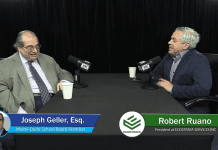|
Getting your Trinity Audio player ready...
|
The attorney-client privilege has been a foundational legal principle for hundreds of years. Cases can swing on the ability of the lawyer and the client to have full and frank discussions without fear of the information leaving the room. If this trust can be appreciated, it can go a long way for a lawyer in representing his or her client and can allow a client to feel comfortable being open and honest.
When does this privilege apply? What does the privilege entail? Does the privilege ever end? We will answer all of these points so you can better understand what makes up this important client privilege.
When Does The Privilege Apply?
The attorney-client privilege applies to certain situations:
– An actual or potential client communicates with a lawyer about legal advice
– The lawyer is acting in a professional capacity (compare this with friendly advice)
– The client indicates that the communication is to be private
Be careful when trying to figure out whether or not your lawyer is acting in a professional capacity. Under the privilege, preliminary communications between a potential client and a lawyer are normally covered. However, be sure to confirm with the lawyer you are speaking to that the privilege applies before you reveal any confidential information.
What Does The Privilege Entail?
The attorney-client privilege is a rule that preserves the confidentiality of communications between lawyers and clients. Lawyers may not divulge their clients’ secrets or communications, nor can other parties force them to divulge.
A lawyer cannot tell anyone else your oral or written communications with them, especially those communications that you reasonably expect to remain private. Further, your lawyer would need your consent in order to reveal any of these communications to anyone outside the legal team.
Again, it is important to make sure that you and the lawyer you are speaking with are on the same page regarding the privilege. It never hurts to ask the question!
Does The Privilege Ever End?
The attorney-client privilege stays in effect even after the attorney-client relationship ends, and even after the client dies. In essence, a lawyer usually will never be allowed to reveal your confidences.
However, there are certain exceptions that allow a lawyer to break their client’s privilege. One of the main exceptions is what called the Crime-Fraud Exception. As an example, if you told your lawyer that you were about to commit a crime or an act of fraud, the attorney-client privilege does not apply. While there are other exceptions, they vary from state to state.
It is important to make sure you go over the scope of the attorney-client privilege with a prospective attorney. At Esquenazi Law, we take the privilege seriously. We understand that personal injury cases can be jarring. Serious injuries suffered in accidents or slip and falls can uproot one’s life. From medical expenses, to hospital stays, to rehabilitation, personal injury cases can be both stressful and uncomfortable. Esquenazi Law aims to take away as much stress and complications as we can. We want to take on the responsibility of fighting for you and for your rights. We give every case a personal touch because it is what our clients need, and what they deserve! Please do not hesitate to reach out to our office for a free consultation in order to discuss your options. We are aways ready to help you win!
By: Bryant Esquenazi. Bryant Esquenazi has been a Miami Beach Personal Injury Attorney for over 25 years. His office is located just off Lincoln Rd. at 1688 Meridian Ave. Call him for a free consult if you’ve been injured in an accident, such as a car accident, slip and fall, wrongful death, watercraft or motorcycle accident. 305-532-1900.Attorney






